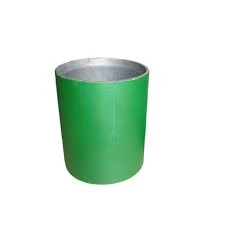- Afrikaans
- Albanian
- Amharic
- Arabic
- Armenian
- Azerbaijani
- Basque
- Belarusian
- Bengali
- Bosnian
- Bulgarian
- Catalan
- Cebuano
- Corsican
- Croatian
- Czech
- Danish
- Dutch
- English
- Esperanto
- Estonian
- Finnish
- French
- Frisian
- Galician
- Georgian
- German
- Greek
- Gujarati
- Haitian Creole
- hausa
- hawaiian
- Hebrew
- Hindi
- Miao
- Hungarian
- Icelandic
- igbo
- Indonesian
- irish
- Italian
- Japanese
- Javanese
- Kannada
- kazakh
- Khmer
- Rwandese
- Korean
- Kurdish
- Kyrgyz
- Lao
- Latin
- Latvian
- Lithuanian
- Luxembourgish
- Macedonian
- Malgashi
- Malay
- Malayalam
- Maltese
- Maori
- Marathi
- Mongolian
- Myanmar
- Nepali
- Norwegian
- Norwegian
- Occitan
- Pashto
- Persian
- Polish
- Portuguese
- Punjabi
- Romanian
- Russian
- Samoan
- Scottish Gaelic
- Serbian
- Sesotho
- Shona
- Sindhi
- Sinhala
- Slovak
- Slovenian
- Somali
- Spanish
- Sundanese
- Swahili
- Swedish
- Tagalog
- Tajik
- Tamil
- Tatar
- Telugu
- Thai
- Turkish
- Turkmen
- Ukrainian
- Urdu
- Uighur
- Uzbek
- Vietnamese
- Welsh
- Bantu
- Yiddish
- Yoruba
- Zulu
api 5ct tubing coupling
Understanding API 5CT Tubing Couplings Essential Components for Oil and Gas Operations
In the oil and gas industry, efficiency and safety are paramount. Among the critical components that contribute to the successful extraction of hydrocarbons from the earth are tubing couplings. Specifically, the API 5CT standard governs the specifications and requirements for casing and tubing in this sector. Tubing couplings play an essential role in ensuring the integrity and functionality of oil and gas wells.
What is API 5CT?
API 5CT is a specification established by the American Petroleum Institute (API) that outlines standards for casing and tubing used in oil and gas operations. This specification defines the requirements for carbon steel pipes that can withstand the unique challenges posed by the extraction process, including high pressures, corrosive environments, and extreme temperatures. The API 5CT covers various grades of tubing, ensuring that operators can choose the right materials for their specific well environments.
The Role of Tubing Couplings
Tubing couplings are crucial connection pieces that link tubular goods (the pipes) in the wellbore. They provide a secure joint between segments of tubing, ensuring that the integrity of the well is maintained. These couplings must be robust enough to handle the operational stresses that occur during drilling and production activities. If a coupling fails, it can lead to significant safety hazards, including leaks and blowouts, which could have catastrophic environmental and financial repercussions.
Types of Couplings
There are several types of tubing couplings compliant with API 5CT specifications
1. Regular Couplings These are standard couplings that connect two sections of tubing. They are designed to provide a leak-proof seal that can withstand the pressures found in underground formations.
api 5ct tubing coupling

2. Long and Short Couplings Depending on the application, long and short couplings may be used. Long couplings offer additional strength and are often used in high-pressure scenarios.
3. Specialized Couplings In certain operational environments, specialized couplings may be necessary. These might include couplings that offer enhanced corrosion resistance or those designed for specific downhole conditions.
Material Considerations
API 5CT tubing couplings are generally made from high-quality carbon steel, although other materials may be used based on specific project requirements. The material selection is crucial, as it directly impacts the coupling's performance in terms of strength, durability, and resistance to environmental factors like corrosive fluids and high temperatures.
Importance of Quality Control
Ensuring that tubing couplings meet the API 5CT standards is critical. This involves rigorous quality control measures during manufacturing, including testing for tensile strength, ductility, and yield strength. Operators must source couplings from reputable manufacturers who provide certified materials to minimize risks within the well operations.
Conclusion
API 5CT tubing couplings are indispensable components in the oil and gas industry, providing essential connections within a well. Their proper selection, construction, and maintenance are vital for the safe and efficient extraction of hydrocarbons. As the industry continues to evolve, the demand for high-quality and reliable tubing couplings will only increase, underscoring their importance in modern oil and gas operations. By adhering to the API 5CT standards, operators can ensure not only the safety of their operations but also the integrity and longevity of their production wells.
-
Tubing Pup Joints: Essential Components for Oil and Gas OperationsNewsJul.10,2025
-
Pup Joints: Essential Components for Reliable Drilling OperationsNewsJul.10,2025
-
Pipe Couplings: Connecting Your World EfficientlyNewsJul.10,2025
-
Mastering Oilfield Operations with Quality Tubing and CasingNewsJul.10,2025
-
High-Quality Casing Couplings for Every NeedNewsJul.10,2025
-
Boost Your Drilling Efficiency with Premium Crossover Tools & Seating NipplesNewsJul.10,2025







